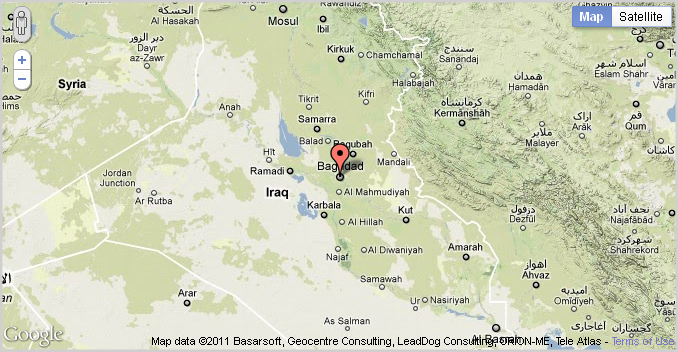|
• 1920: Britain creates the State of Iraq with League of Nations approval. • 1932: End of the British Mandate. Iraq wins full independence. • 1958: The Hashemite monarchy is dethroned. Iraq is declared a republic. • 1968: The Ba’ath party seizes control of Iraq following a bloodless coup led by Gen. Ahmad Hasan Al-Bakr. • 1979: Saddam Hussein succeeds an “ailing” Bakr as president. • 1980: Iraq invades Iran. The two countries become embroiled in a war of attrition lasting eight years and costing 1 million lives. • 1988: Iraqi forces launch a series of poison gas attacks on the Kurdish village of Halabja in northern Iraq. • 1990: Iraq invades Kuwait, precipitating the First Gulf War. The UN Security Council responds by imposing a strict financial sanctions and a trade embargo on Iraq. • 1991: The US-led coalition forces Iraq out of Kuwait. • 1991: The UN announces the creation of a safe haven in northern Iraq to protect the Kurdish population. • 1995: The “oil-for-food” program instituted by the UN allows the partial resumption of Iraq’s oil exports in exchange for food and medicine for the population. • 2003: The US leads an invasion to topple Saddam Hussein’s government. Saddam’s removal creates a political and security vacuum sparking years of violent conflict with different groups competing for power. • 2003: UN Security Council backs the US-led administration in Iraq and lifts economic sanctions. The US administrator, L. Paul Bremer, abolishes the Ba’ath Party and forces ex-party members out of office. • 2003: After eight months in hiding, Saddam Hussein is captured in Tikrit. • 2004: The US hands sovereignty to an interim government headed by Prime Minister Iyad Allawi. • 2005: Eight million Iraqis vote in elections for a Transitional National Assembly. The Shi’a United Iraqi Alliance wins a majority. Kurdish parties come second. Parliament appoints Kurdish leader Jalal Talabani as president. Ibrahim Jaafari, a Shi’ite, is named as prime minister. • 2006: Upsurge in sectarian violence following a bomb attack on an important Shi’a shrine in Samarra. • 2006: Saddam Hussein is executed for crimes against humanity. • 2007: US president George W. Bush announces the deployment of an additional 30,000 US troops in Iraq in a bid to end the insurgency. • 2009: US president Barack Obama announces withdrawal of most US troops by end of August 2010. Up to 50,000 of 142,000 troops would stay on into 2011 to advise Iraqi forces and protect US interests, leaving by end of 2011. • 2010: The March parliamentary elections attract a turnout of more than 60 percent of Iraqis. However, no coalition manages a decisive win. One hundred days after votes are cast, Iraq is still without a new government. • 2013: Sectarian violence affects cities across Iraq with bombings in Baghdad, Kirkuk, Kerbala Al-Nasiriyah and others. |
|
[map id=”countryBriefMapIn” w=”676″ h=”350″ z=”6″ maptype=”TERRAIN” address=”Baghdad, Iraq” marker=”yes”]

